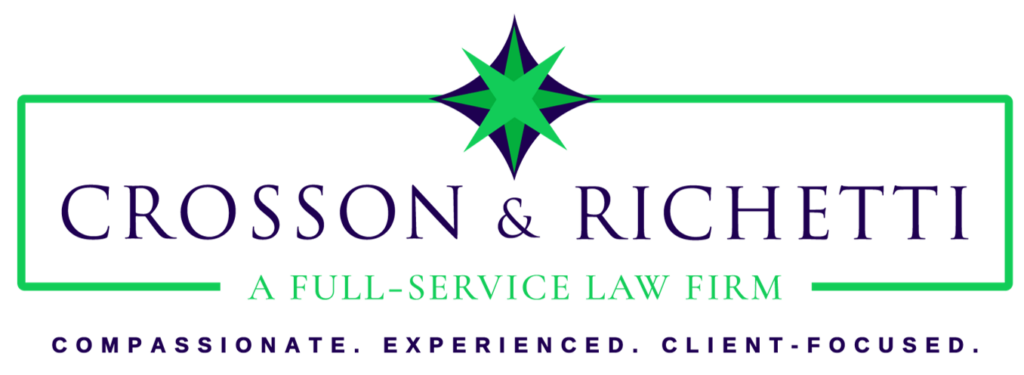1. Digital Asset Management
In today’s digital age, assets are no longer confined to physical or traditional financial accounts. Digital assets include:
- Online banking and investment accounts.
- Cryptocurrencies like Bitcoin and Ethereum.
- Social media accounts.
- Cloud storage and subscription services.
- Intellectual property such as blogs, videos, and digital art.
Challenges:
Without a clear plan for digital assets, families often face challenges accessing or managing these accounts after a loved one’s death. Privacy laws and platform-specific policies can complicate matters further.
Strategies:
- Inventory Your Digital Assets: Create a detailed list of all online accounts, including login credentials and security questions, where applicable.
- Designate a Digital Executor: In some states, including Pennsylvania, you can name a digital executor to manage your digital assets. Ensure this individual is tech-savvy and trustworthy.
- Use Secure Storage: Utilize encrypted password managers to store sensitive information securely.
- Include Instructions in Your Estate Plan: Specify how each digital asset should be handled, whether it’s deactivation, transfer, or preservation.
2. Elder Care and Long-Term Care Planning
With an aging population, planning for elder care is a growing concern. By 2025, it is projected that over 20% of the U.S. population will be aged 65 or older. Rising healthcare costs and longer life expectancies underscore the importance of planning for long-term care.
Challenges:
- Medicaid Eligibility: Qualifying for Medicaid often requires a significant reduction of assets, leaving families concerned about preserving wealth.
- Rising Costs: The cost of assisted living and in-home care continues to climb, with nursing home expenses averaging over $100,000 annually in some areas.
- Emotional Stress: Family members often face the emotional and logistical burden of caring for aging loved ones.
Strategies:
- Set Up a Long-Term Care Insurance Policy: These policies can help cover the cost of elder care, providing financial relief to families.
- Establish Medicaid-Qualified Trusts: Trusts such as irrevocable Medicaid asset protection trusts can help shield assets while enabling Medicaid eligibility.
- Advance Directives for Healthcare: Ensure your estate plan includes clear instructions regarding medical treatments and end-of-life care.
- Financial Power of Attorney: Designate a trusted individual to manage financial matters if you become incapacitated.
3. Blended Families
Blended families—where one or both partners have children from previous relationships—are increasingly common. Estate planning for these families requires special considerations to balance the needs of all parties.
Challenges:
- Potential Conflicts: Disagreements may arise between children from different relationships and surviving spouses.
- Unintended Asset Distribution: Without a detailed plan, assets may not be distributed equitably or according to your wishes.
- Legal Complexities: Navigating inheritance laws in Pennsylvania can be particularly complex for blended families.
Strategies:
- Draft a Comprehensive Will: Clearly outline how assets will be divided among all family members.
- Consider a Trust: Trusts can provide financial support to a surviving spouse while preserving assets for children from prior relationships.
- Prenuptial and Postnuptial Agreements: These legal documents can clarify financial arrangements and reduce conflicts.
- Regularly Update Your Plan: Life events such as remarriage or the birth of additional children should prompt a review of your estate plan.
4. Charitable Giving
Philanthropy is a cornerstone of many estate plans, allowing individuals to leave a lasting legacy. However, effective charitable giving requires careful planning to maximize impact and tax benefits.
Challenges:
- Tax Implications: While charitable donations can reduce estate taxes, navigating the rules can be complex.
- Selecting the Right Charities: Ensuring donations align with personal values and have a meaningful impact requires research.
- Balancing Family Needs: Generosity must be balanced with the financial needs of heirs.
Strategies:
- Charitable Trusts: Options like charitable remainder trusts (CRTs) and charitable lead trusts (CLTs) allow you to support causes while providing tax benefits and income for beneficiaries.
- Donor-Advised Funds: These accounts enable you to make contributions over time, allowing flexibility and control.
- Legacy Letters: Include a statement of your philanthropic intentions to inspire future generations.
- Tax Planning: Work with financial advisors to structure donations in a tax-efficient manner.
5. Tax Law Changes
Tax laws continue to evolve, affecting estate planning strategies. Recent federal and state-level changes have significant implications for inheritance and estate taxes.
Challenges:
- Uncertainty: Potential legislative changes can create confusion and the need for frequent plan updates.
- State Inheritance Taxes: Pennsylvania’s inheritance tax applies to most estates, with rates varying based on the relationship between the decedent and the beneficiary.
- Federal Estate Tax Exemptions: As of 2025, federal estate tax exemptions may be reduced, impacting high-net-worth individuals.
Strategies:
- Annual Gifting: Utilize the annual gift tax exclusion to reduce taxable estates incrementally.
- Lifetime Exemption Use: Consider taking advantage of the current federal estate tax exemption before it changes.
- Tax-Efficient Trusts: Trusts like irrevocable life insurance trusts (ILITs) can help reduce taxable estates.
- Stay Informed: Work with estate planning professionals to adapt your plan to the latest tax laws.
6. Business Succession Planning
For business owners, ensuring the smooth transition of their enterprise is a critical aspect of estate planning. Without a succession plan, businesses may face operational and financial instability.
Challenges:
- Family Disputes: Differing opinions among heirs about business ownership can lead to conflicts.
- Liquidity Issues: Lack of liquidity can make it challenging to pay estate taxes or buy out heirs who are not involved in the business.
- Leadership Transition: Identifying and preparing the next generation of leaders is often a lengthy process.
Strategies:
- Create a Buy-Sell Agreement: This legal document outlines how ownership interests will be transferred in the event of death, disability, or retirement.
- Establish a Family Business Council: Facilitate open communication among family members involved in the business.
- Key Person Insurance: This type of insurance provides funds to help the business recover from the loss of a key leader.
- Employee Stock Ownership Plans (ESOPs): These plans allow employees to gradually purchase ownership, ensuring continuity.
7. Special Needs Planning
Families with loved ones who have special needs face unique estate planning considerations to ensure long-term care and financial security.
Challenges:
- Government Benefits: Receiving an inheritance can disqualify individuals from Medicaid or Supplemental Security Income (SSI).
- Caregiver Designation: Identifying and preparing future caregivers is often a deeply personal and emotional process.
- Complex Financial Needs: Balancing current and future expenses requires careful planning.
Strategies:
- Special Needs Trusts: These trusts provide financial support without affecting eligibility for government benefits.
- Letter of Intent: This document outlines your wishes for the care and support of your loved one.
- Guardianship: Appoint a legal guardian to make decisions if your loved one cannot do so independently.
- Coordinate with Advisors: Work with attorneys and financial planners experienced in special needs planning.
8. Environmental and Ethical Considerations
As awareness of environmental and social issues grows, more individuals are incorporating ethical considerations into their estate plans.
Challenges:
- Balancing Priorities: Aligning environmental goals with family needs can be complex.
- Limited Guidance: There are fewer established frameworks for environmentally focused estate planning.
Strategies:
- Green Trusts: These trusts prioritize environmental goals, such as funding conservation projects or reducing the carbon footprint of estate assets.
- Sustainable Investments: Incorporate environmentally friendly investments into your portfolio.
- Eco-Friendly Burial Plans: Specify green burial methods in your advance directives.
The Path Forward
Estate planning in 2025 is about more than asset distribution—it’s about aligning your legacy with your values and adapting to the complexities of modern life. By addressing these top concerns, you can create a plan that ensures peace of mind for you and your loved ones.
At Crosson Richetti, we specialize in crafting personalized estate plans tailored to your unique circumstances. Contact us today to secure your legacy and navigate the complexities of 2025 with confidence.
Questions about Estate Planning, reach out now: CLICK HERE







